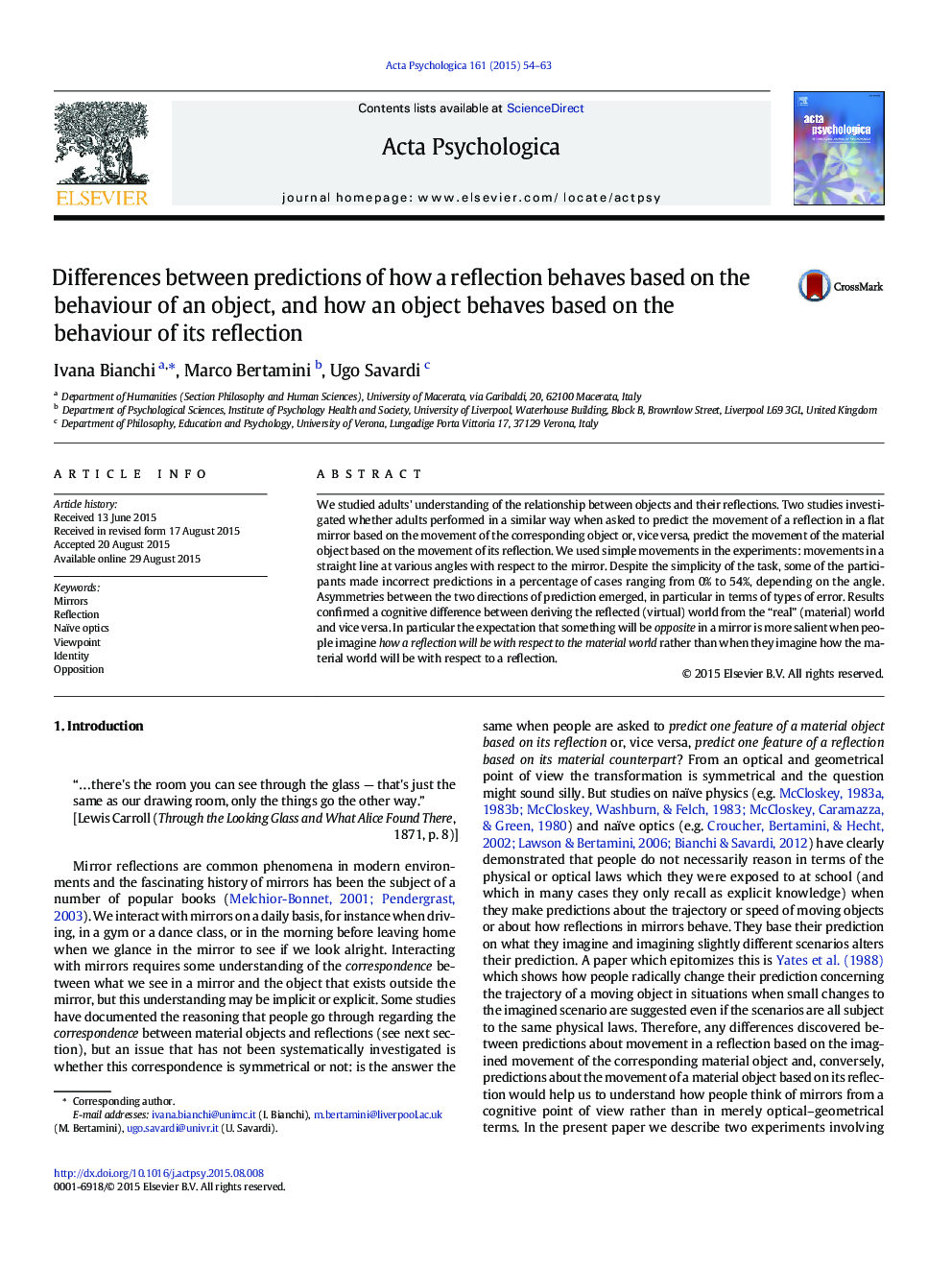| Article ID | Journal | Published Year | Pages | File Type |
|---|---|---|---|---|
| 7277221 | Acta Psychologica | 2015 | 10 Pages |
Abstract
We studied adults' understanding of the relationship between objects and their reflections. Two studies investigated whether adults performed in a similar way when asked to predict the movement of a reflection in a flat mirror based on the movement of the corresponding object or, vice versa, predict the movement of the material object based on the movement of its reflection. We used simple movements in the experiments: movements in a straight line at various angles with respect to the mirror. Despite the simplicity of the task, some of the participants made incorrect predictions in a percentage of cases ranging from 0% to 54%, depending on the angle. Asymmetries between the two directions of prediction emerged, in particular in terms of types of error. Results confirmed a cognitive difference between deriving the reflected (virtual) world from the “real” (material) world and vice versa. In particular the expectation that something will be opposite in a mirror is more salient when people imagine how a reflection will be with respect to the material world rather than when they imagine how the material world will be with respect to a reflection.
Related Topics
Life Sciences
Neuroscience
Cognitive Neuroscience
Authors
Ivana Bianchi, Marco Bertamini, Ugo Savardi,
